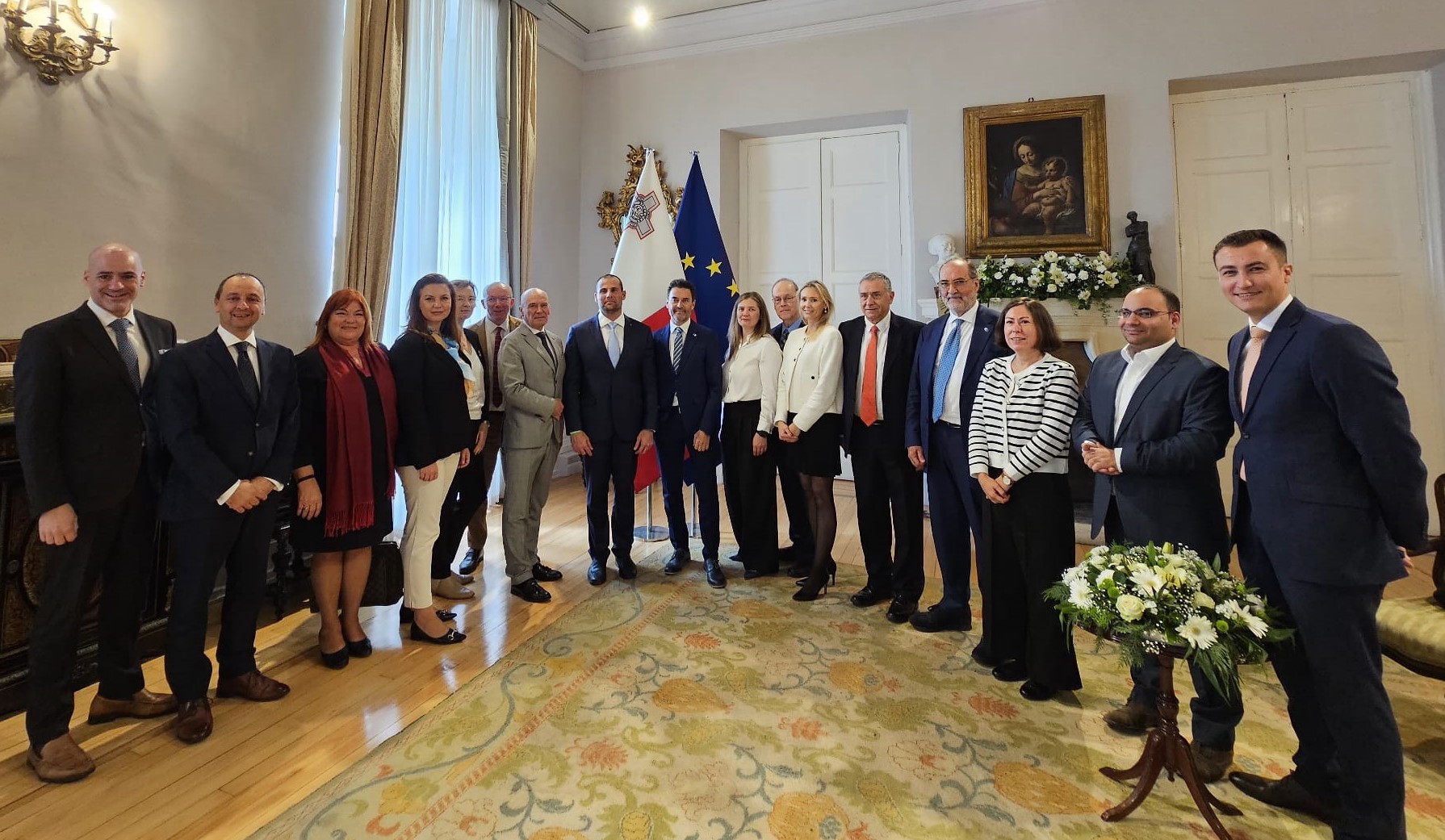In the context of the Extraordinary Group Meeting in Malta, a delegation of the EESC Employers' Group, led by President Stefano Mallia, met with Prime Minister Robert Abela to discuss the upcoming EU political agenda, in the eve of the starting of a new Commission.
"The momentum to prioritise competitiveness is stronger than ever, with the release of the Draghi and Letta reports adding new urgency. We have a unique opportunity to put forward an agenda that will restore Europe’s competitive edge," said President Stefano Mallia. "The EU needs to adapt to an increasingly challenging global reality while building on our strengths — a well-functioning single market and openness to the world," Mallia added, stressing the need for member states to stay united in the coming months and swiftly find the policy mix to create a business-friendly environment where European companies can innovate, grow, and lead.
Prioritising measures to reduce the regulatory burden in our Single Market, lower energy costs, encourage innovation, address skills and labour shortages, and diversify Europe's export and import markets are more important than ever, said EU employers.
The Group also met Perit David Xuereb, Chairman of the Malta Council for Economic and Social Development (MCESD), and other members of the organisations to discuss priorities and strategic areas for closer collaboration.
“Investment alone won’t drive Europe forward; structural reforms are essential,” said President Stefano Mallia. “We must reduce regulatory burdens, deepen the Single Market, and lower energy costs. Now is the time to move from declarations to swift actions that create a business-friendly environment for European companies to innovate, grow, and lead.”
A recent European Investment Bank survey found that 61% of businesses see EU regulation as an obstacle. Regulatory simplification could drastically increase investment and innovation. While the so-called "simplification revolution" is cautiously welcomed by European businesses, frustration is building over the lack of tangible progress. In March 2023 President von der Leyen committed to reducing reporting requirements by 25%, now increased to 35% for SMEs, but businesses have yet to see the promised changes and are bearing the cost of delays.
Turning political declarations into practise is urgent to create a business-friendly EU. Policy makers and business need to work together and swiftly find the policy mix to create a business environment where European companies can innovate, grow, and lead.
The meeting underscored the EESC Employers' Group's commitment to actively support the efforts to advance the EU's competitiveness agenda and to engage with partners and stakeholders to achieve this goal.
***
Maria Mincheva - Vice President of BIA, participated in the meeting as a member of the Employers' Group in the EESC






